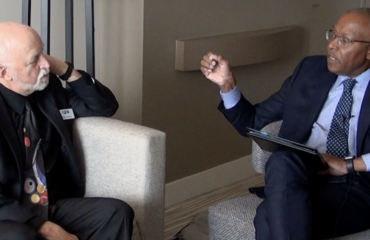Justice Speaks Podcast #70
In this episode of Justice Speaks, we return to the field of Therapeutic Jurisprudence, interviewing Dr. Yasuhiro Maruyama, a distinguished professor of criminal justice at Rissho University in Tokyo.
About Dr. Maruyama
Dr. Maruyama begins by recounting his early academic interests and his first exposure to Drug Courts in the United States. His initial study of Drug Courts as a young student led him to the U.S., where he observed problem-solving courts firsthand. In the U.S., he formed bonds with notable figures in the field, including JSI Co-Founder Judge Peggy Hora whom he affectionately considers his “American mother.” Her mentorship helped shape his dedication to understanding the application and impact of Therapeutic Jurisprudence globally.

Contrasting Policies for Criminal Justice
The discussion then shifts to Dr. Maruyama’s areas of focus within Japanese criminology, including the contrasting policies Japan employs toward criminal punishment and support for vulnerable populations. He describes what he calls a “bipolarization” in Japan’s criminal justice system, where harsh penalties coexist with newer rehabilitative measures aimed at helping individuals such as juveniles, the elderly, drug users, and those with developmental disorders. Despite these advancements, Dr. Maruyama notes a significant lack of support for these populations, especially when compared to treatment-oriented approaches in other nations.
Dr. Maruyama also discusses Japan’s unique “lay judge” system, where citizen judges participate alongside professional judges in serious criminal cases. Unlike jury systems in the United States, Japanese lay judges help determine both guilt and sentencing. He notes that Japan’s judicial philosophy emphasizes punishment based solely on past actions, contrasting with the U.S., where preventive detention may be applied. This approach, influenced by historical experiences from World War II, prioritizes punishment only after crimes have occurred, reflecting Japan’s commitment to avoiding preemptive punitive measures.

A Traditional Criminal Justice System in Japan
One of the central themes of the interview is the fundamental differences between Japan’s justice system and that of the U.S. Dr. Maruyama observes that Japan does not have problem-solving courts like those in the U.S., which aim to address social and individual issues beyond conventional criminal proceedings. He believes this is a significant gap, as many societal issues require approaches that traditional criminal courts may not be equipped to handle effectively. In his view, drug users in Japan are still largely seen as criminals rather than individuals in need of treatment, which limits the potential for rehabilitation within the system.
Dr. Maruyama then discusses Therapeutic Jurisprudence, a field he has studied extensively across countries. He explains that while Therapeutic Justice approaches are deeply rooted in the criminal justice system, they bring the challenge of balancing treatment with accountability. Citing international examples, he highlights both the successes and complexities of harm reduction, especially as it relates to drug policies. Japan, he explains, has yet to widely adopt harm reduction principles, which he believes would offer a more humane and effective alternative to punitive drug policies.
Wrap Up
The conversation concludes with Dr. Maruyama’s reflections on the future of justice reform in Japan. He envisions a more nuanced approach, one that blends therapeutic and punitive measures where appropriate, and calls for a shift in public perception to better support rehabilitative justice. He emphasizes that a singular approach may not be the answer, advocating instead for tailored solutions that address specific circumstances, particularly in cases involving vulnerable populations.
Through this discussion, Dr. Maruyama provides listeners with a unique perspective on Japan’s criminal justice system, illustrating its distinct characteristics, its limitations, and the potential for reform. His expertise underscores the value of international collaboration in justice practices, as well as the importance of integrating lessons learned from other countries to create more effective, compassionate justice systems
We wish to thank Dr. Maruyama for sharing his insights and experiences on Justice Speaks.
Additional Resource
You can watch this interview by going to the Justice Speakers Institutes’ YouTube Channel or by clicking here.
Get more articles like this
in your inbox
Subscribe to our mailing list and get the latest information and updates to your email inbox.
Thank you for subscribing.
Something went wrong.






